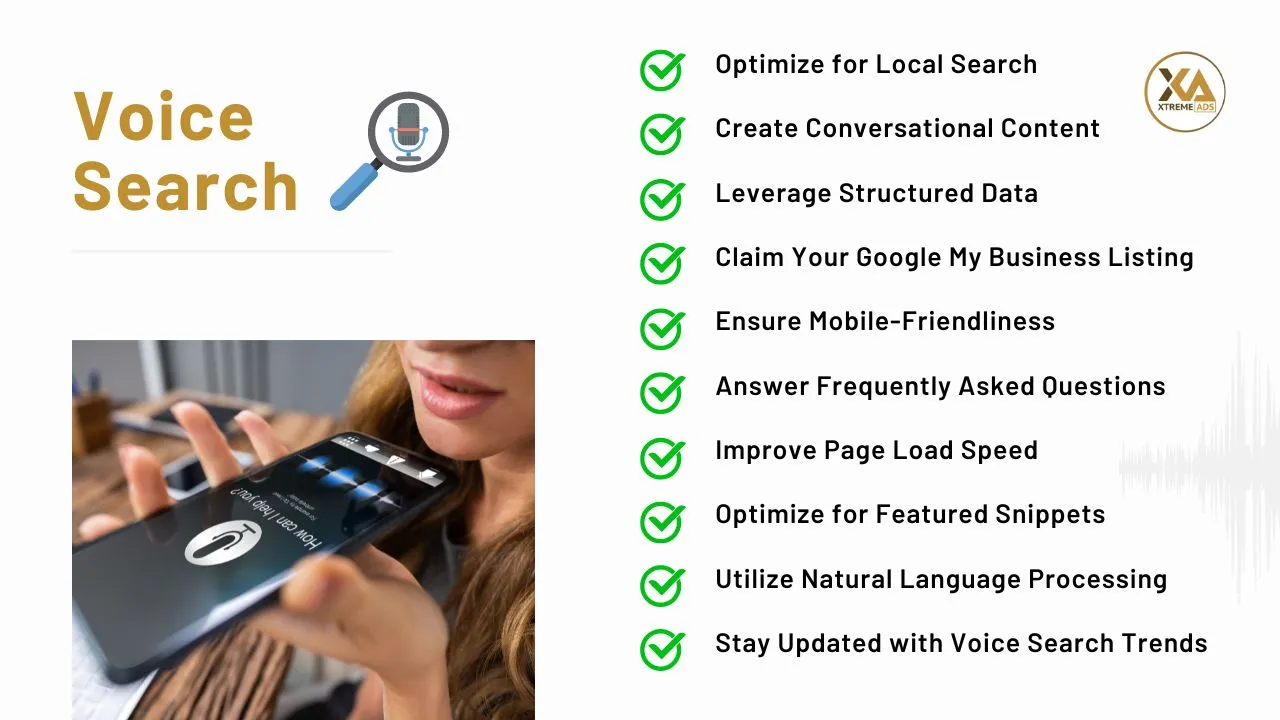Voice search is revolutionizing the way people interact with search engines. With the rise of virtual assistants like Siri and Alexa, optimizing your website for voice search has become essential for staying up to date. In this blog, we will explore 10 voice search optimization strategies to optimize your website ranking.
Understanding Voice Search
Voice search is a technology that allows users to search the internet using speech instead of typing. With the help of artificial intelligence, devices can recognize and process spoken queries, providing users with relevant search results. Voice search has gained popularity in recent years, with approximately 40% of internet users in the world utilizing voice search-enabled devices.
Popular Voice Search Devices and Search Engines
Voice search devices have become present everywhere in our daily lives. From smartphones to smart speakers, there are various devices that support voice search. Here are some of the most popular voice search devices and the search engines they use:
| Device | Search Engine |
|---|---|
| Google Home | |
| Amazon Echo/Alexa | Bing |
| Google Assistant | |
| iPhone/Siri | Safari |
| Android phones | |
| Microsoft Cortana | Bing |
The Impact of Voice Search on SEO
Using our voice to search has changed how we look up information a lot. While traditional text-based searches focused on keywords, voice searches are more conversational in nature. As a result, search engines have had to improve their understanding of semantics and user intent. This shift has led to a greater emphasis on user experience rather than keyword optimization.

1. Optimize for Local Search
Local search plays a crucial role in voice search queries. People often use voice search to find local information, such as nearby restaurants or stores. To optimize your website for local search, focus on local SEO strategies. This includes creating content that is relevant to your local area and incorporating local keywords into your copy. Additionally, make sure to include phrases like “near me” in your title tags, meta descriptions, internal links, and anchor text. By prioritizing local Search engine optimization, you can increase your chances of appearing in voice search results.
2. Create Conversational Content
When optimizing your website for voice search, it’s important to create content that is conversational. Voice search queries tend to be more natural and conversational in nature compared to typed queries. To align with this, your content should mirror the language and tone used in voice searches. This means focusing on providing quick and concise answers to user queries while maintaining a conversational tone. By doing so, you can improve the user experience and increase your chances of ranking in voice search results.
3. Leverage Structured Data
Structured data, also known as schema markup, can play a significant role in optimizing your website for voice search. By implementing structured data on your site, you provide search engines with additional information about your content. This helps search engines understand the context and relevance of your content, making it more likely to appear in voice search results. Structured data can provide details such as contact information, operational hours, and directions, which are often searched for after in voice searches.
4. Claim Your Google My Business Listing
Claiming and optimizing your Google My Business listing is crucial for local SEO and voice search optimization. Voice searches often seek important details about your business, such as contact numbers, addresses, and opening hours. By ensuring that your Google My Business listing is accurate and up-to-date, you provide search engines with the necessary information to deliver accurate results to voice search users. Make sure to fill out all relevant information and regularly update your listing to maintain its accuracy.
5. Ensure Mobile-Friendliness
Mobile-friendliness is essential for voice search optimization. The majority of voice searches are conducted through mobile devices, so it’s crucial that your website is optimized for mobile. A mobile-friendly website provides a seamless user experience, allowing users to easily navigate and access information. Ensure that your website is responsive, loads quickly, and has a mobile-friendly design. By prioritizing mobile optimization, you can improve your chances of ranking in voice search results.
6. Answer Frequently Asked Questions
Voice search queries often take the form of questions. To optimize your website for voice search, focus on creating content that answers frequently asked questions related to your industry or niche. Conduct thorough research to identify the questions your target audience is asking and create comprehensive and informative content that addresses these queries. By providing valuable answers to user questions, you increase your chances of appearing in voice search results.
7. Improve Page Load Speed
Page load speed is a crucial factor in both traditional and voice search optimization. Slow-loading websites can negatively impact user experience and increase bounce rates. Since voice search users expect quick and accurate answers, it’s essential to ensure that your website loads quickly. Optimize your website’s performance by compressing images, minimizing HTTP requests, and leveraging browser caching. By improving your page load speed, you can enhance the user experience and improve your chances of ranking in voice search results.
8. Optimize for Featured Snippets
Featured snippets are an important feature in voice search results. When voice assistants provide answers to user queries, they often read out information from featured snippets. To optimize for featured snippets, focus on providing concise and informative answers to commonly asked questions. Structure your content in a way that allows search engines to easily extract relevant information for featured snippets. By optimizing for featured snippets, you increase your chances of being selected as the primary source of information in voice search results.
9. Utilize Natural Language Processing
Natural Language Processing (NLP) is a branch of artificial intelligence that focuses on understanding and interpreting human language. Search engines use NLP algorithms to better understand the meaning behind user queries. To optimize your website for voice search, consider incorporating natural language in your content. This involves using synonyms, related terms, and variations of keywords to ensure that your content aligns with the language used in voice searches. By leveraging NLP techniques, you can improve your website’s relevance and visibility in voice search results.
10. Stay Updated with Voice Search Trends
Voice search technology is constantly evolving, and it’s essential to stay updated with the latest trends and advancements. Keep an eye on industry news, attend conferences, and follow reputable sources to stay informed about voice search developments. By staying ahead of the curve, you can adapt your optimization strategies and ensure that your website remains competitive in voice search rankings.
Conclusion
Adapting your website for voice search is a must-do now. With more people using voice devices, you need to follow smart strategies. These 10 tips really help. They make your site show up better and rank higher in voice search. Speak naturally, use structured data, and make your site mobile-friendly. Keep up with voice search trends and improve your methods to stay ahead in this changing world.
Read our new blog for 5 Tips to Optimize Your Google Ads Campaigns for Voice Search.


